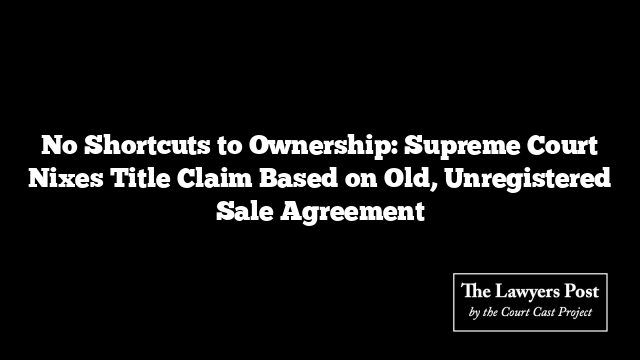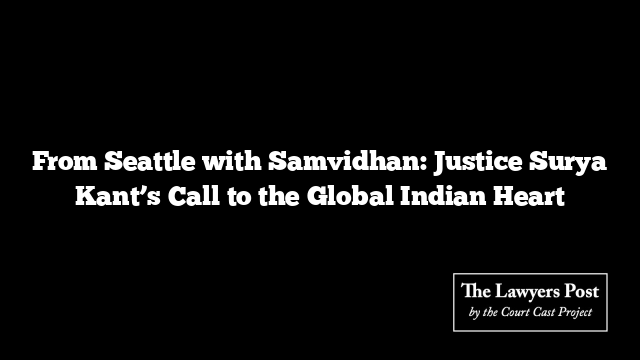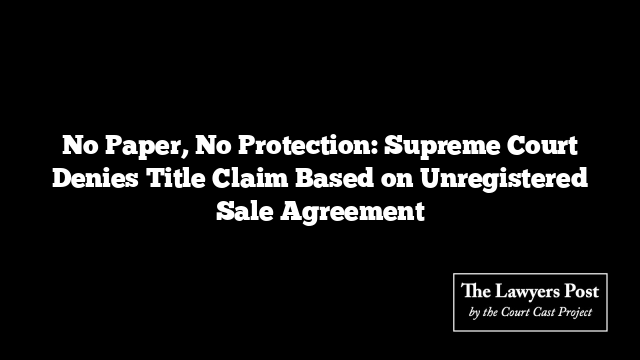The Supreme Court has drawn a hard line on property titles: if the original sale agreement isn’t registered, no amount of later paperwork can magically create ownership.
In a case involving a 1982 sale agreement that never saw the light of the registration office, the respondent tried to assert ownership decades later, pointing to a 2006 “validation” of that unregistered document by the Assistant Registrar. The person also leaned on a subsequently registered document tied to that same 1982 agreement, hoping it would cure the flaw.
But the apex court wasn’t buying it.
A bench led by Justices Sudhanshu Dhulia and K. Vinod Chandran ruled that title can’t be conferred on the strength of a registered document if its foundation — the original sale agreement — was never validly registered in the first place. “You can’t build a house on quicksand,” the ruling seemed to suggest.
Referring to Section 23 of the Registration Act, the Court underscored that a document must be submitted for registration within four months of execution, with a narrow exception allowing another four months upon payment of a fine, as per the proviso to Section 34.
Justice Chandran, writing the judgment, said that the 1982 agreement — both in its original and revalidated forms — didn’t carry any legal weight, and the later registration of a related instrument couldn’t breathe life into it.
By reversing the High Court’s earlier decision, which had granted the respondent protection from eviction, the Supreme Court made it clear: registration isn’t a formality, it’s foundational. A late validation doesn’t rewrite the law.





